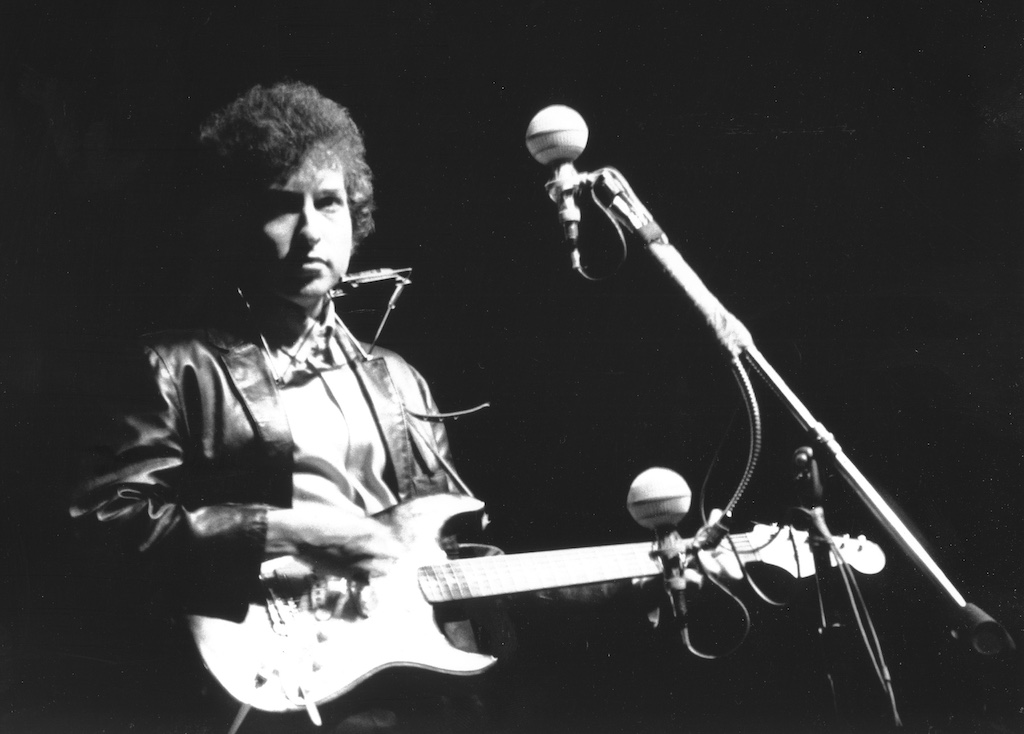Mike Marqusee (1953–2015) wrote several important books about the politics of popular culture, including Wicked Messenger: Bob Dylan and the 1960s. In this extract from Wicked Messenger, Marqusee discusses the famously controversial performance by Dylan at the Newport Folk Festival in 1965 and the political undercurrents running through it.
Bob Dylan’s electric set at the Newport Folk Festival in July 1965 was to become, in Clinton Heylin’s words, “the most written about performance in the history of rock.” And not without cause. Dylan’s clash with the constituency from which he’d emerged, including individuals who’d sponsored his early career, was high Oedipal drama, marked by overreaction on all sides.
The moment was resonant. It was the fulcrum of the American ’60s, as the early unity and idealism of the civil rights movement gave way to division and pessimism, the war in Vietnam intensified, and domestic opposition began to grow. The first glimmers of the counterculture were visible and the media was discovering that rebellion could sell.
These interlinked trends infused Newport that July; they lie behind both Dylan’s aggressively boundary-blurring sound and the divided response to it.
The day before Dylan’s performance, there had been a backstage incident that foreshadowed the clash to come. Alan Lomax had given a grudging introduction to a session by the Paul Butterfield Blues Band, whose electrified instruments he was known to disapprove of.
Bob Dylan’s clash with the folk…
Auteur: Mike Marqusee

